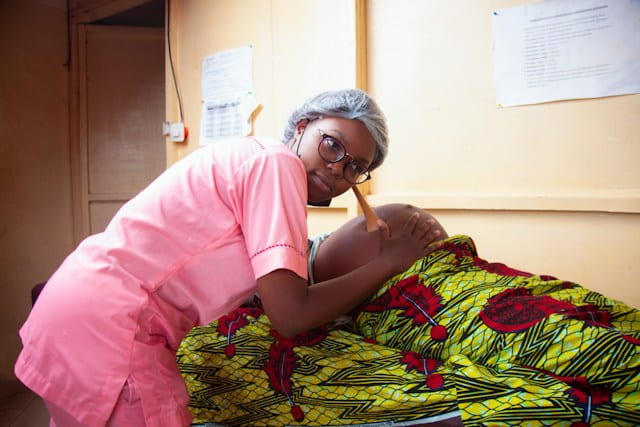This Content Is Only For Subscribers
Childbirth is one of the most life-changing occurrences in a woman’s life. There are a lot of expectations around the mother, which mostly stem from cultural practices. Who ought to be involved in the process of where a woman is supposed to give birth and the kind of work she’s supposed to do? This article examines African-American childbirth traditions and how that’s transformed over time.
If you’re looking for baby clothes, consider Amazon. They have a lot of options in their catalog.
Become an insider. Subscribe to our newsletter for more top trending stories like this!
People Also Read: 10 Interesting Facts About African Civilizations
The Beginning of Midwifery
Midwifery has existed in America since the 17th century when Europeans enslaved Africans in the United States. Some of the slaves were trained to be midwives and helped African-American and white women to deliver their babies.
They were also responsible for caring for the woman before and after birth. This involved helping them in breastfeeding, cooking, and doing other household duties. More than that, midwives were seen as counselors, healers, and traditional healers.
People Also Read: 9 Interesting Quotes About The Black Family
The Introduction of Obstetrics
In the 18th century, obstetrics were introduced. This led to a rise in the number of children born in hospitals and a decline in those delivered by midwives. This led to doctors claiming that due to a lack of professional skills, cleanliness and education, midwifery led to higher death rates.
In reality, they wanted to kick midwives out of their jobs to get pregnant women to rely on hospitals. The result of this was that by 1940, home births declined to 44%.
Join our Spotcovery Global Black Community Facebook Group for early access to exclusive content and to share in a lively discussion.
Midwives Embrace Professionalism
As the childbirth tradition widely practiced in the African-American communities changed, the midwives embraced these changes. They agreed to attend formal training.
They even obtained permits for their practice, attended safety and hygiene classes, recorded data of all births, obtained letters of recommendation, and followed safety rules.
If you are looking for baby items to decorate the room of your baby, go to Amazon to pick these items.
People Also Read: Top African Countries With Arabian Influence in the Modern World
Become an insider. Subscribe to our newsletter for more top trending stories like this!
Emergence of Doulas
Between 1939 and 1948, the rate of mortality fell by 71%. Even though midwifery was on the decline, the need for emotional support and companionship led to the use of doulas. Doulas provide support to women during pregnancy and after a child is born. They were invited by friends to their families to provide postpartum care.
In 1992, Doulas of North America, later Doula International, was created. They were so significant because children born in their presence were born with the right weight, were highly unlikely to get birth complications, and were highly likely breastfed.
People Also Read: History of Black Voting Rights. 6 Interesting Facts
Modern Birth
In 2022, 12% of births in the United States were performed by certified midwives. The number of midwives and midwife students increased.
As of 2021, 7% of nurses, midwives, and certified midwives were black or African-American. This is a significantly low number and should be a matter of concern, considering that black women are disproportionately affected by childbirth than white women.
According to the Center for Disease Control (CDC), black women experienced 70 deaths for every 100,000 live births, almost thrice the rate for white women. The leading cause of these is postpartum cardiomyopathy, eclampsia, and blood pressure disorders.
African-American childbirth traditions have changed over time. Whilst medical practice has brought in more safety, it’s yet to address the mortality rates among black women.
You’ll need a baby stroller after your baby is born. Check out Amazon.
Nearly 80% of consumers visit directories with reviews to find a local business. List your business for free in our exclusive Spotcovery Black-Owned Business Directory.
Spotcovery offers unique and fresh daily content on Black culture, lifestyle, and experiences. We talk about everything black, black people, black-owned and black-owned businesses. We also deliver authentic and relevant content that will inform, inspire, and empower you! The future of black media is critical to today’s black experience! Our primary audience includes African Americans, Africans, Afro-Caribbean, and people of African heritage. Black culture is for the culture!
Become an insider. Subscribe to our newsletter for more top trending stories like this!





